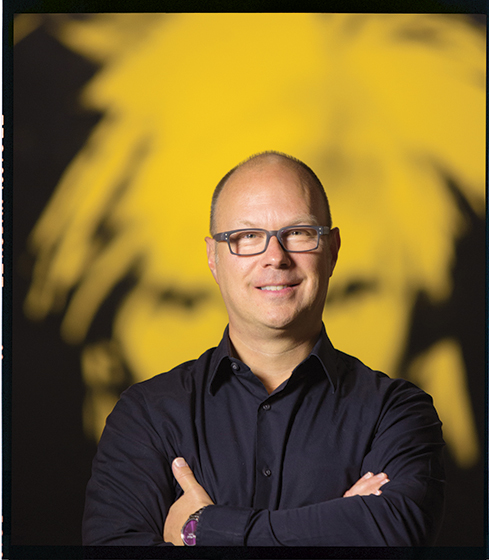 Winter 2013
Winter 2013|
Andy Warhola
Donald Warhola has lots of stories to tell about annual family vacations spent at Uncle Andy’s New York townhouse. He and his brothers stayed in a bedroom on the third floor, and he recalls onetime when their sleeping quarters were oddly cramped with a bunch of Brillo boxes. “I didn’t realize they were sculptures,” Warhola says, laughing. “I was thinking, boy, Uncle Andy must be a clean freak with all these Brillo pads!” His memories of Andy Warhol are pretty much all like that—sweet, funny. A surprise, maybe, to everyone except the artist’s family, who he kept separate from his public goings-on. It’s that side of the Pop art genius—the son who brought his mom to live with him and said a prayer with her before leaving the house each day; the uncle who slipped his nephew a $100-bill before a big-city shopping trip—that he relishes talking about. He succeeded his late father, John, as a board member of The Andy Warhol Foundation of the Visual Arts in New York, and is now employed by the foundation as liaison to The Andy Warhol Museum. At age 24, with a degree in computer science, he had briefly lived in New York, helping his uncle modernize his office: “I said, gee, you’re Andy Warhol, you need computers!” That was right before Warhol’s death in 1987. Warhola went on to earn a master’s degree in social work; and now he’s getting his informal education in all things Warhol as he shares his stories with visitors. “I have my own image of my uncle, but it’s great working here at the museum, where I’m learning about the art side. It makes for a nice blending.” What was Andy Warhol like as an uncle?Imagine it’s the ‘60s—myself, my parents, my two older brothers invading his townhouse in New York. We would go up there for about a week and stay with him. As kids, we couldn’t really get our heads around ‘Andy Warhol.’ We knew he was an artist, but he was just Uncle Andy. And he had really neat collectables. I was just reminiscing with my oldest brother about how he used to have these undressed mannequins up on the fourth floor. His art supplies and his collectables—he just would keep them scattered throughout the house. Did you think he was kind of odd?He wasn’t eccentric to us. I remember my uncle for his kindness, and for his sense of humor. I know some people are disappointed when they hear that. There was a persona he put out there that was more eccentric; he created that persona. But I’ve always felt that my uncle enjoyed more being the observer than the participant in parties and functions. Even when I watch different videos of him and documentaries, it’s interesting—you can see he was very shy. But he was always very comfortable with us. Did you get to meet celebrities?We would ask him. We knew, for instance, that the Rolling Stones practiced for their ’72 tour at his summer home. So we would ask, ‘How are the Rolling Stones?,’ and he would just say, ‘Oh, they’re fine; how is school?’ He never wanted to talk about himself or his art in any way if we tried to go there. He would always get you to talk about yourself. He was sincerely interested in you. You worked for him when you graduated. How was that?It was great to get to know my uncle on that level, and see the Andy Warhol enterprises. It was the atypical artist’s studio because you would expect maybe some big open spaces with art supplies; but on one floor he had Interview magazine cranking away, doing stories and photography, and then you had folks upstairs working on films, the TV show. It was very much a business. How is it that you’re the only family member, other than your grandma, with a portrait done by your uncle?I think it’s just because no one else asked. It was my senior yearbook picture and I got the wallet-size photos and was sending them out, and I had one earmarked for Uncle Andy. So I wrote a letter and said, gee, Uncle Andy, if you had the time could you do a portrait of me? To me it’s a treasure, but not from a monetary standpoint. Does it get old talking about your uncle and your childhood?I often think about that. No. I give the credit to Uncle Andy—that he really allowed for a relationship to develop so that I have these stories to tell. He wasn’t too busy, he wasn’t too famous for his family—he was so cool, so present. That’s one part of it. The other part is that I’m just so proud of him.
|
What's Your Energy IQ? · A Playful, Soulful Spectacle · Energy in Human Form · For the Love of Bugs · Directors' Note · NewsWorthy · Artistic License: Girl Power · Field Trip: Pop goes China · About Town: Art for All · The Big Picture
 |
Copyright © 2017 CARNEGIE Magazine. All rights reserved. |

